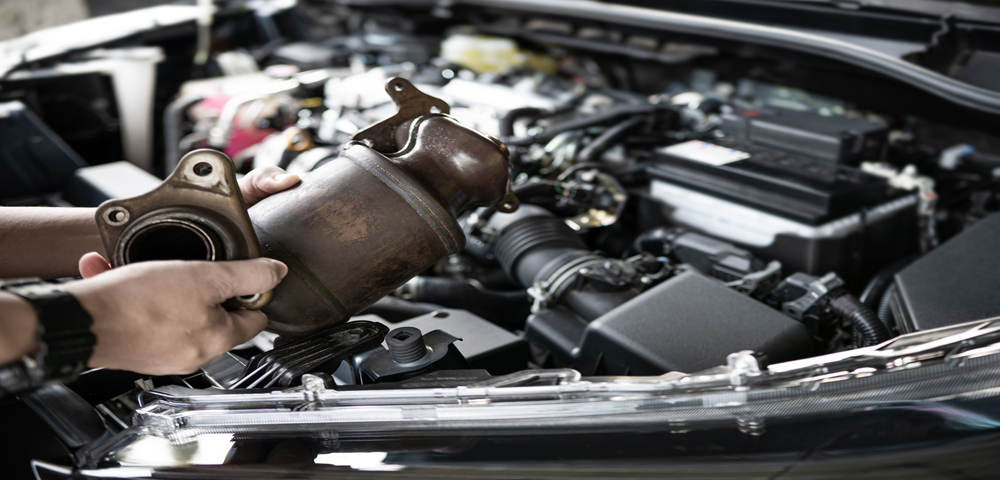Sustainable Vehicle Recycling & Your Local Scrap Yard
In the pulsating veins of our modern world, vehicles are the lifeblood that keeps our societies moving. From bustling city streets to serene countryside lanes, they ferry us to our destinations, embodying progress, convenience, and freedom. Yet, with innovation comes responsibility. As our roads become increasingly crowded with cars, trucks, and buses, the environmental footprint left behind grows ever larger. Enter vehicle recycling – an essential aspect of sustainable mobility that offers a lifeline for our planet and future generations.
The Road to Recycling: A Sustainable Journey
Vehicle recycling isn’t just about salvaging metal and rubber; it’s a holistic approach to managing the end-of-life cycle of automobiles. The process begins with dismantling, where skilled technicians carefully disassemble vehicles, salvaging parts for reuse or resale. This step not only reduces waste but also extends the lifespan of components, minimizing the need for new production and conserving resources.
Once dismantled, the real magic of vehicle recycling unfolds. Advanced technologies, such as shredding and metal separation systems, break down the carcass of the vehicle into its core materials – steel, aluminum, copper, and plastics. These materials are then sorted and processed for reuse in a variety of industries, from construction to manufacturing, closing the loop on resource utilization and reducing the demand for virgin materials.
Driving Towards a Greener Future
The environmental benefits of vehicle recycling are undeniable. By diverting end-of-life vehicles from landfills, we mitigate the pollution and land degradation associated with automotive waste. According to the Automotive Recyclers Association, recycling a single car can save up to 2,500 pounds of iron ore, 1,400 pounds of coal, and 120 pounds of limestone – resources that would otherwise be extracted from the earth at great ecological cost.
Moreover, vehicle recycling contributes to energy conservation and emissions reduction. Producing steel from recycled materials consumes up to 74% less energy than producing it from raw materials, slashing greenhouse gas emissions in the process. By prioritizing recycling over traditional disposal methods, we take significant strides towards combating climate change and preserving our planet for future generations.
Challenges on the Horizon
Despite its many virtues, vehicle recycling faces its share of challenges. The proliferation of complex electronic components in modern vehicles presents a hurdle for recycling facilities, requiring specialized knowledge and equipment to safely process these materials. Additionally, the globalization of the automotive industry has led to the dispersal of manufacturing and recycling facilities, increasing logistical complexities and transportation emissions.
Furthermore, consumer attitudes and awareness play a crucial role in the success of vehicle recycling initiatives. Educating the public about the environmental benefits of recycling and promoting responsible end-of-life vehicle disposal are essential steps in fostering a culture of sustainability within the automotive sector.
The Road Ahead: Innovations and Opportunities
As we navigate the road towards a greener future, innovation will be our compass. Emerging technologies, such as electric vehicles (EVs) and autonomous driving systems, offer exciting opportunities for sustainable mobility. Electric vehicle batteries, for example, present both a challenge and an opportunity for recycling efforts. By developing efficient battery recycling processes, we can harness the potential of EVs while minimizing their environmental impact.
Moreover, the concept of circular economy principles is gaining traction within the automotive industry. By designing vehicles with recyclability in mind and implementing closed-loop supply chains, manufacturers can reduce waste and maximize resource efficiency throughout the product lifecycle.
Managing Vehicle Recycling
Vehicle recycling isn’t just a means of managing automotive waste – it’s a testament to our commitment to building a sustainable future. By embracing the principles of recycling and circular economy, we can transform end-of-life vehicles from environmental liabilities into valuable resources. As we journey towards a greener horizon, let us pave the way with innovation, responsibility, and reverence for the world we inhabit.

